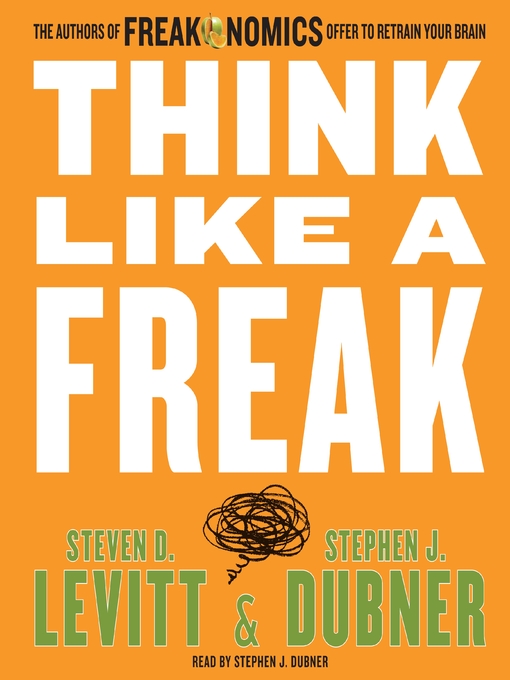
Think Like a Freak
The Authors of Freakonomics Offer to Retrain Your Brain
کتاب های مرتبط
- اطلاعات
- نقد و بررسی
- دیدگاه کاربران
نقد و بررسی

With his confidence and vocal clarity, author/narrator Stephen Dubner sounds like a supremely knowledgeable computer engineer talking to middle school students. But his performance sounds spontaneous and more friendly than know-it-all, and is an inviting way to offer this intelligent, highly entertaining book in audio form. With captivating stories and snappy prose, the book provides fascinating insights about the counterintuitive ways people dupe and misinform each other, and makes intuitive observations on why we cling to conventional wisdom instead of looking at data in more realistic, economic terms. The audio is a sterling example of how a potentially dull book about cognitive processes can be written--and narrated--in a way that grabs and holds attention, provides useful insights, and presents itself as a fun opportunity to understand the world more clearly. T.W. © AudioFile 2014, Portland, Maine

May 5, 2014
The bestselling bards of gonzo economics return with this new compendium of nifty, if occasionally shallow contrarian mind-warps. This time University of Chicago economist Levitt and journalist Dubner clothe their Freakonmics schtick in flimsy self-help garb by instructing readers on how to "think like a Freak": ignore conventional wisdom; focus on data; test theories with experiments; don't confuse correlation with causality (married people may be happier, they note, because no one wants to marry a grump); most of all, attend to the devious workings of callow self-interest that rule all things (a principle that comically backfires when one of them uses candy bribes to toilet-train his daughter). Levitt and Dubner apply these nostrums to problems having little to do with economics, including competitive hot dog-eating, why Nigerian con artists advertise themselves as Nigerian con artists, and the game-theoretical ploys of King Solomon and David Lee Roth. Their arguments are lucid, catchy, and sometimes dubious; their brief for the efficacy of medieval trial-by-ordeal is no more convincing than their hackneyed attack on Britain's national health system. The result is brief, blithe, but ill-digested provocations that stimulate controversy, but are too sketchy to settle it.

























دیدگاه کاربران